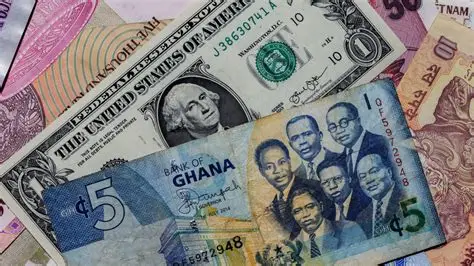Read also:
- Article 146 Committee Submits Report on Chief Justice Petitions
- Ghana’s State-Owned Enterprises: Revenue Growth Offset by Soaring Expenses”
- Kotoko Clinch 2025 Champion of Champions Title with 1-0 Win Over Gold Stars
- “We Forgot to Play” – Pep Guardiola Slams Man City’s Late Collapse Against Brighton
- Ghana Matchday Booklet Launched to Promote Sports Development
The Ghanaian cedi has depreciated significantly across both interbank and retail markets due to strong demand and weak foreign exchange support.
The cedi declined in value by 6.58% against the US dollar, 6.20% against the pound, and 6.51% against the euro, to close trading at GH¢11.40, GH¢15.40, and GH¢13.34, respectively, in the interbank market. In the retail market, the cedi depreciated by 5.80%, 5.44%, and 4.53% against the dollar, pound sterling, and euro, respectively, settling at mid-rates of GH¢12.50/US dollar, GH¢16.55/pound, and GH¢13.35/euro.
On a month-on-month basis, the cedi slipped by 7.89% to the dollar, with the Year-To-Date gains trimming off to 28.95% from 40% recorded in July 2025. Databank Research revealed that strong corporate demand pressures amid thin FX support and a resilient US dollar intensified nominal depreciations of the cedi.
Heightened expectations, driven by adverse regulatory tightening and weaker forex flows, further fueled the weak trend. Databank Research expects mounting bids in the near term as importers prepare ahead of the festive season, sustaining pressure on the local currency.
The Bank of Ghana’s tighter measures to curb FX leakages may take time to filter through, with any potential rebound by fortnight end contingent on stronger FX support, expectations of a Fed rate cut, and the US$4 billion inflows to support cocoa purchases.
Meanwhile, the cedi started trading this week unchanged at GH¢12.70 (mid-rate: GH¢12.50) to one dollar.




